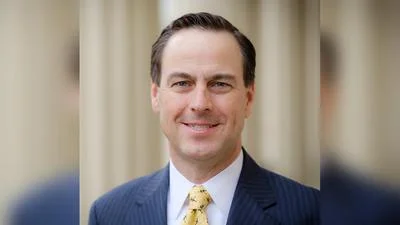Andy Chan Vice President, Personal and Career Development | Wake Forest University
Andy Chan Vice President, Personal and Career Development | Wake Forest University
Francisco Gallegos, an Associate Professor of Philosophy at Wake Forest University, dissects the complex concept of "zozobra" in a discussion that sheds light on how this feeling may shape communal and individual responses to uncertainty. Gallegos, who has been part of the faculty since 2018, delves into the philosophy of emotions and the influence of Mexican philosophers like Jorge Portilla on this unique kind of anxiety.
In an interview, Gallegos explains how the commonplace Spanish word "zozobra" encompasses more than its typical translation to "anxiety." He states, “The verb ‘zozobrar’ means ‘to capsize,’ and according to the Mexican philosophers... zozobra is a distinctive kind of anxiety we feel when we are at sea in historical currents that are pushing us about.” He illustrates it as the metaphorical experience of being on a ship caught in a storm, attempting to navigate through the turmoil and uncertainty.
Jorge Portilla, whose works Gallegos co-authored in a book titled "The Disintegration of Community," offers significant insights into the roots of zozobra. Portilla, and other thinkers integral to Latin American philosophy, argue that zozobra emerges when there are fractures in the shared understandings that bind societies. This breakdown in "shared norms, values, institutions, and traditions" underpins the structure and cohesion of communities, leading to disorientation and a struggle to make sense of societal shifts.
"The Disintegration of Community," co-edited by Gallegos, along with "The Latinx Philosophy Reader," highlight how these philosophical standpoints provide valuable perspectives amid today's global crises, such as ecological and migration issues. Gallegos comments that as these shared frameworks deteriorate, “people have a sense that our communities and societies do not share a robust framework for making sense of what is true and what is most important.”
Portilla’s philosophical perspectives present a broader view of zozobra, as he stresses on the communal over the individual experience of anxiety. Gallegos emphasizes that, “a key insight from Mexican philosophy is that when a person experiences themselves as living in a disintegrating society, they will feel it on an emotional level.” This expands the term's application beyond a fleeting personal feeling to a pervasive societal condition marked by uncertainty and ambivalence.
Gallegos suggests that recognizing and understanding zozobra could foster communal solidarity. The act of naming this shared emotional condition may serve as a catalyst for community building and mutual understanding, as individuals navigate the historically unprecedented changes and challenges facing contemporary society.
Zozobra, as articulated through Portilla's essays such as "The Spiritual Crisis of the United States," offers not only philosophical depth but also humor, making it a resource for coping and understanding during these complex times. Portilla’s works, infused with humor and insight, resonate with present-day struggles, making them relevant to ongoing national and global discussions.






 Alerts Sign-up
Alerts Sign-up